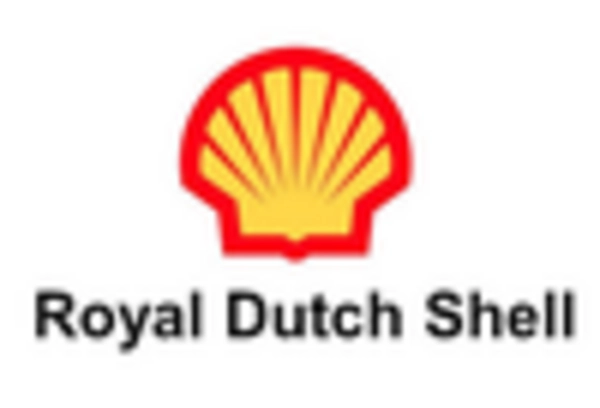Expansion of End-User Industries
The expansion of end-user industries is a crucial driver in the Specialties of Lube Oil Refinery Market. Sectors such as automotive, construction, and manufacturing are experiencing robust growth, which in turn fuels the demand for specialized lubricants. For instance, the construction industry is projected to grow at a CAGR of 5% through 2025, leading to increased lubricant consumption for machinery and equipment. This growth necessitates the development of tailored lubricant solutions that cater to specific operational requirements. Consequently, lube oil refineries are adapting their product offerings to meet the unique needs of these expanding industries, thereby enhancing their market presence and driving overall growth.
Rising Demand for High-Performance Lubricants
The increasing demand for high-performance lubricants is a pivotal driver in the Specialties of Lube Oil Refinery Market. Industries such as automotive, aerospace, and manufacturing are increasingly seeking lubricants that enhance efficiency and reduce wear. This trend is underscored by the projected growth of the automotive sector, which is expected to reach a market size of approximately 4 trillion USD by 2025. As manufacturers strive for improved performance and sustainability, the demand for specialized lubricants that meet stringent regulatory standards is likely to rise. Consequently, lube oil refineries are adapting their production processes to cater to this evolving market, thereby driving innovation and investment in specialty lubricants.
Technological Innovations in Refining Processes
Technological innovations in refining processes are transforming the Specialties of Lube Oil Refinery Market. Advances in refining technologies, such as hydrocracking and solvent extraction, enable refineries to produce higher-quality lubricants with improved performance characteristics. These innovations are crucial as they allow for the extraction of specific components that enhance lubricant properties, such as viscosity and thermal stability. The market for specialty lubricants is projected to grow at a CAGR of around 4% through 2025, driven by these technological advancements. As refineries invest in state-of-the-art equipment and processes, they are better positioned to meet the diverse needs of various industries, thus expanding their market share.
Regulatory Compliance and Environmental Standards
Regulatory compliance and stringent environmental standards are significant drivers in the Specialties of Lube Oil Refinery Market. Governments worldwide are implementing regulations aimed at reducing emissions and promoting the use of environmentally friendly lubricants. For instance, the introduction of the European Union's REACH regulation has compelled manufacturers to reformulate their products to meet safety and environmental criteria. This shift not only influences the types of lubricants produced but also necessitates investment in advanced refining technologies. As a result, lube oil refineries are increasingly focusing on developing specialty products that align with these regulations, thereby enhancing their market competitiveness and sustainability.
Growing Focus on Sustainability and Eco-Friendly Products
The growing focus on sustainability and eco-friendly products is a key driver in the Specialties of Lube Oil Refinery Market. Consumers and businesses alike are increasingly prioritizing environmentally responsible products, leading to a surge in demand for bio-based and biodegradable lubricants. This trend is reflected in the rising number of certifications for eco-friendly products, which are becoming essential for market entry. As a result, lube oil refineries are compelled to innovate and develop specialty lubricants that not only meet performance standards but also align with sustainability goals. This shift is likely to reshape the competitive landscape, as companies that embrace sustainable practices may gain a significant advantage in the market.

















Leave a Comment